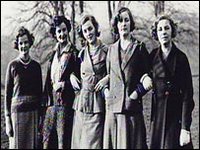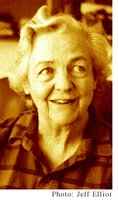
On an episode of the TV series Extras, actress Kate Winslet explains to the two main characters of the show that a sure-fire way to get an Oscar is to star in a movie about the Holocaust. Another good bet is to play a mentally retarded character.
Judging by the attribution of this years Booker Prize and subsequent reviews, it would seem that in the post 9/11 literary world a good way to get your book noticed is to make it about “globalization, multiculturalism, inequality”, as one BBC reviewer listed the themes on Kiran Desai’s latest book.
I’ve finished “The Inheritance of Loss” more than a month ago, and for a while was not exactly sure what to make of it. More to the point I didn’t know if I had liked it.
On the surface I had. Just like reviewers a bit everywhere I found it moving, thought provoking and honest.
Kiran Desai’s book is really about two stories (you read one chapter about one, and then the next about the other until the end); one set in a village in India, near the border with Nepal, the other in New York. I’ve grown to dislike this narrative technique because usually what happens is that I grow to like one of the stories better, and therefore rush through the chapters about the other one. In “Inheritance of Loss” I felt the same. I wanted to read about Biju and his ordeal as an illegal immigrant in New York, and leave the other characters behind. His ordeal is made poignant, because you know this happens, and Desai paints so many details so expertly, that you can’t help but feel you are watching a documentary. In fact, if a documentary was shot following the life of an Indian immigrant in an American city, I almost doubt it would feel as real.
But Desai’s ability to render the actual so life-like, to infuse the everyday with the political, is probably what keeps “The Inheritance of Loss” from being a truly great story. A message, be it a political or a moral one, is a good thing to have in a novel, but you have to make the reader believe he traveled the path on his own, even though he has been of course, gently led along by the author. The heart of the great novel must rest with its characters and plot, not merely with its manifesto.
In Kiran Desai’s book you are slapped right and left with politics. The author lays bare in front of you immigration in the forties to the British metropolis, in the character of the retired judge (he brings to mind V. S. Naipaul on several occasions), and today’s correspondent, immigration to the United States. You have only one conclusion to reach, led by Desai: the process of leaving infuses the family with joy and hope in a better future for their offspring, while their souls are broken beyond repair through their travels west. Immigration, in some way, takes away faith in humanity, and replaces it with a coldness and indifference to others (the judge after all, seems to feel only real affection towards the dog).
This pull of immigration is not of course, limited to India (Biju, meets workers from many countries in the kitchens of NY’s restaurants) and not even to third world countries. In the Italian series, “La Meglio Gioventu” one of the first scenes, set, I believe in the beginning of the eighties, shows a college professor, advising his pupil, one of the main characters, that if he wishes success in his academic field, therefore in his life, he must immigrate as soon as possible, preferably to the United States, or to England. Outside the USA, Britain, and maybe France or Germany, every other middle-class, teens to thirties young person has been brought up to believe that a better life can be achieved simply by relocating deeper into the Empire. This is why Biju’s story strikes such a deep chord, and has the capacity to do so almost universally.
Desai’s other story, follows a retired judge, his teenage granddaughter, Sai, their cook (who is Biju’s father), and other assorted villagers, through the months of a political upbringing led by ethnic Nepalese. These characters feel a bit one dimensional, especially Sai. Actually a characteristic of Desai’s book is that all the characters seem quietly out of focus, blurred, as if you could never get to their minds and hearts. They are, all of them elusive, and not in a good way.
Although the judge’s reminiscences about his youthful immigration to Britain, are closer in nature to the quality of the chapters on Biju, the ploy of making Sai, fall in love with her tutor, who then joins the insurgents feels very contrived, as if the only point were to give the author a character in every possible side of the political spectrum.
I guess the worse criticism I can offer on “The Inheritance of loss” is that it doesn’t feel genuine. I felt I was being rather obviously manipulated, and at the same time felt that it wasn’t necessary, since I was going to get to the same conclusions without being dragged along. The characters feel cold, but mostly it’s as if the author herself didn’t like her own creations, or didn’t want to get too involved with them. Some reviews stress the beauty of the language, but to me, the more poetic, descriptive passages, felt labored, in such a way that calls attention to the writer and away from the story.
This is not a book that will live on in your mind, at least not in the way favorites usually do: through an expertly sketched character, vivid descriptions, or an absorbing plot.
However it is still a good read. It does make you want to think about where you stand on a series of issues.
In an interview cited in the NY times, Desai described her first novel “Hullabaloo in the Guava Orchard” as “frivolous”. When I first read this I thought she was being self-deprecating in a funny sort of way. Now I’m not so sure. There’s definitely some lack of substance in “The Inheritance of Loss” as well, even though it deals with important trends in society.
Maybe that’s why it reads like a term paper written by a good student: all the facts are there but not the heart. But, she knew she’d get a good grade. This is, after all, the teacher’s favorite subject.

